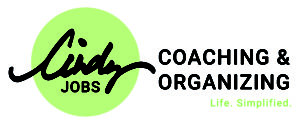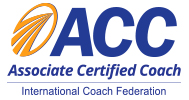Communication is tough.
It’s even more of a challenge if we struggle with the traits of ADHD (Dr. Thomas Brown):
- Activation
- Focus
- Effort
- Emotion
- Memory
- Action
Think about it:
Activation: Sometimes, it’s even hard to start a conversation, especially if we feel it’s not going to go well. However, the concern around having the conversation is almost always worse than the conversation itself. If starting conversations is challenging, send the recipient an e-mail asking to set a time to talk and give your perspective on the upcoming discussion. That way, both parties can be prepared to have a thoughtful and productive conversation.
Focus: Mindful listening and speaking are much more difficult if we are easily distracted. It’s not that the speaker/listener isn’t paying attention, it’s that their focus is everywhere . . . not just on the conversation. Additionally, people challenged with ADHD traits find it more challenging to have linear discussions. One thought leads to another, which leads to another, which leads to another. You get my point.
Effort: As stated earlier, communication is hard. It takes time and energy to get it right. Although, at the moment, we may feel like it’s just not worth the effort, think about what the alternative is. A conscientious effort to ensure clear and consistent communication will avert a lot of challenges down the road.
Emotion: Emotional regulation and impulse control are common traits for people with ADHD. In conversation, it’s essential to pause and approach conversations from a place of curiosity. If you feel challenged, rather than internalizing, ask a question like “I’m feeling a disconnect. Can we explore that?” The extra time can help our emotions from getting the best of us.
Memory: Our brains are good at problem-solving, yet they may not be reliable at remembering things. Although memories may all the stored in our brains somewhere, based on the brains “filing system,” they may be incredibly challenging to reconstruct. So whenever possible, rather than trying to remember things, find another way to offer memory support, like writing things down or recording a message.
Action: Sustaining action is another challenging trait of ADHD. After having a productive conversation, make an action plan on what the next steps may be and put them in your calendar. Relying on activation, focus, and memory without an action plan may not serve you well.
Additional thoughts on communication:
- Mindful listening:
- Listen with intent to understand, not to respond.
- Be patient.
- Be mindful of body language (social cues).
- Ask for clarification (acknowledge you understand or don’t).
- Make eye contact when possible.
- Don’t interrupt.
- Reflect back.
- Mindful speaking:
- Be mindful of the partner.
- Allow them to participate.
- Be mindful of the timing of the conversation.
- Watch for social cues (boredom, trying to speak, leaving the conversation, etc.)
- Be mindful of mood and tone.
- Stick to the point, minimal wandering.
- Pause before reacting.
- Be mindful of the partner.
- Helpful phrases:
- “What I think I heard you say is . . . .”
- “Can you repeat what you heard, please?”
- “My takeaway from that is . . .”
Hopefully, you now know more about how ADHD traits may affect productive communication. Think about what you need to have a successful conversation with your family, friends, and co-workers and put appropriate support systems into place.
Cindy Jobs, COC, ACC
Looking for more information?
Click here for 15-minute organizing tips.
Click here to schedule a complimentary breakthrough session.
For more helpful information, follow me on Facebook.



Attention Deficit Disorder Association
National Association of Productivity & Organizing Professionals, Seattle Chapter
International Coach Federation
Institute for Challenging Disorganization
Level I Certificates earned in Chronic Disorganization; ADD; Client Administration; Time Management; Mental Health; and Hoarding.
Level II Specialist Certificates earned in Chronic Disorganization and ADHD.







